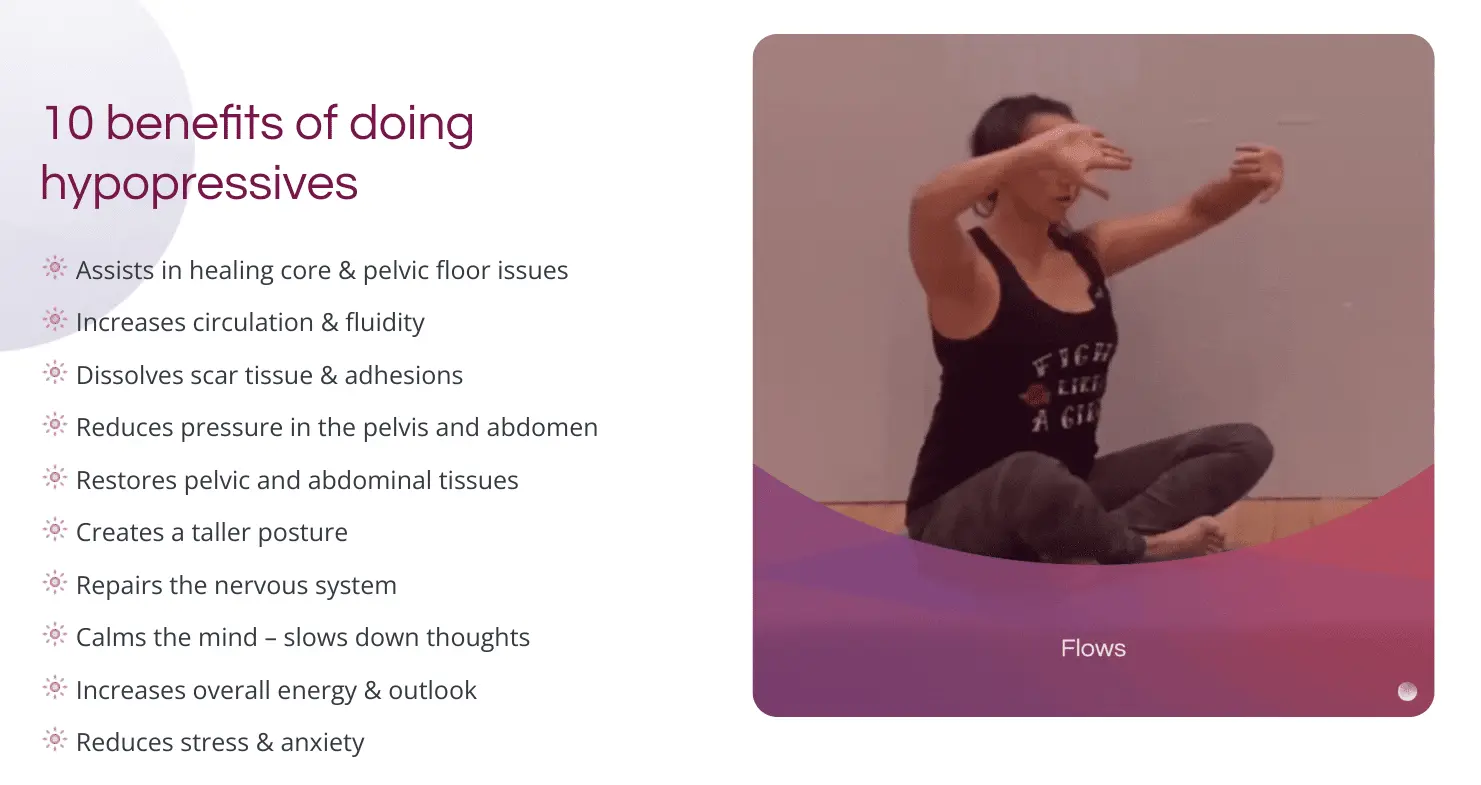Horrible Perimenopause Symptoms: How To Prepare for Menopause
- June 15, 2022
- Perimenopause & Menopause

Remember the time you started your period?
Maybe you felt scared, unprepared, and alone all at once. This is how perimenopause can feel too. Some even call it the estrogen’s storm season because it can feel like a storm going on in your body and mind.
And symptoms of perimenopause are often mistaken for another health issue — the signs and symptoms of perimenopause are common, but it’s not something we talk about it a lot.
So, let’s break the silence!
In this blog, we will discuss how to deal with perimenopause symptoms (what to do and what not to do) and prepare you for this transition. We will also share how this gradual change from menstruation to menopause is affected by various factors.
Perimenopause, Premenopause, and Menopauses
What is Perimenopause?
Perimenopause literally means “around menopause”. It’s the transitional phase your body undergoes until you reach the point when you won’t have a monthly period anymore.
Perimenopause Vs Premenopause
Though used interchangeably, perimenopause and premenopause are not the same. Premenopause refers to your reproductive years — the time when you still have a period or the time when you don’t have any symptoms of either perimenopause or menopause.
Perimenopause Vs Menopause
Perimenopausal age is the years when your estrogen levels sporadically fluctuate until they completely stop — triggering the start of menopause.
When you’re menopausal, your ovaries are no longer releasing eggs, meaning you can no longer become pregnant. Menopause becomes “official” when you haven’t menstruated for 12 consecutive months or 1 calendar year.
What is the average age for
Perimenopause?
On average, perimenopause starts around ages 40 to 44 years old usually lasts for 4–8 years before women reach menopause in their early 50s.
However, it’s also possible for women to experience perimenopause or menopausal symptoms earlier than this. According to North American Menopause Society, this can be categorized as either:
• premature menopause —
menopause that happens before 40
• early menopause —
menopause that happens before age 45
Early and premature menopause / perimenopause may be influenced by different factors including:
• Family history
• Smoking
• Chemotherapy or other cancer treatments
• Surgeries (such as Oophorectomy and Hysterectomy)
• Certain health conditions (autoimmune diseases, HIV or AIDS, missing chromosomes, and chronic fatigue syndrome)
But regardless of the cause, both premature and early menopause are associated with long-term health risks including cardiovascular and neurologic disease, osteoporosis, psychosexual dysfunction, and mood disorders.
How long does perimenopause last? – a gradual process of change
Perimenopause usually lasts for four years but some may also experience it for only a few months or longer than four years. In average cases, your estrogen levels will significantly decrease during the last one to two years of perimenopause causing symptoms that may or may not be the same with other women.
Perimenopause is a normal and gradual process rather than a disease that needs treatment, and it is unique for every woman. Dr. Susan Love, a renowned breast surgeon, said it perfectly, “If estrogen deficiency’s a disease, then all men have it!”
But that doesn’t mean you have to endure the pain and negative feelings that can come with perimenopause — you can prepare for it and minimize possible symptoms!
Signs and Symptoms of
Perimenopause
There are a lot of symptoms that may emerge during perimenopause including:
1. Physical Symptoms
• Menstrual irregularities
• Tender breasts
• Intermittent hot or cold flushes, and night sweats
• Urinary incontinence and urgency
• Fatigue and insomnia
• Vaginismus
• Bloating and flatulence
• Weight and hair loss
• Dry mouth or mouth ulcers
• Skin itching, acne, dry skin, oily skin,
•Nausea, headaches, and migraines
•Clumsiness and being accident-prone
• Aches and pains in muscles and joints
• Diarrhea or constipation
• Brain Fog
2. Sexual Symptoms
• Vaginal dryness
• Painful sex
• Low libido or sex drive
3. Psychological Symptoms
• Anxiety, depression, and panic attacks
• Mood swings
• Low confidence
• Irritability
• Increased PM
How To Deal With Perimenopause
Symptoms and Prepare for
Menopause

The key to dealing with perimenopause is to recognize what’s happening in your body.
It’s important to know that there is nothing wrong with you — that your body is taking natural adjustments to prepare you for another beautiful phase in your life. Sure, you may not dodge all the symptoms, but knowing what’s in front of you will make a world of difference.
What To Do In Perimenopause
1. Keep a Healthy Weight – low estrogen levels will make you gain weight faster which if not managed, may lead to obesity and other serious health issues.
2. Take Regular Exercise that you enjoy – regular and light exercises can be helpful in preventing diseases and improving your overall health during perimenopause.
3. Watch Your Diet – the Mediterranean diet pattern along with other healthy habits rich in anti-inflammatory and antioxidant properties is associated with lower blood pressure, reduction of fat mass, and stable cholesterol levels which are especially crucial during perimenopause.
4. If you smoke, now’s the time to kick the habit! – smokers are at risk of early menopause
5. Cut down on alcohol and caffeine in your diet – caffeine increases your risk of experiencing blood pressure-related problems while alcohol is linked to early menopause and other reproductive disorders.
6. Try Out Natural and Stress-Releasing Therapies – take more me-time and relaxation techniques such as meditation and Yoga. This will also help you calm your nerves if you have trouble sleeping.
7. Get Support! – it’s easy to feel lonely as you approach menopause. Surround yourself with a community like MoonRise dedicated to helping you get through perimenopause gracefully!
What Not To Do in Perimenopause
1. Don’t Starve Yourself (But Don’t Eat Too Much Either) – although your metabolism will change, your body needs nutrients more than ever, so neither starving nor overeating will be beneficial to your health during perimenopause.
2. Don’t Fill Your Diet with Unhealthy Food – limit or cut saturated fats, and highly refined carbohydrates from your diet.
3. Don’t Overdo Your Exercises – doing intense cardiovascular exercises will raise your cortisol levels (your body’s primary stress hormone). Instead, try weight/resistance training.
4. Don’t Expose Yourself to Stress – take some pressure off and cultivate an environment where you can breathe, meditate, and relax as needed.
5. Don’t Isolate Yourself – socialization plays a vital role during perimenopause. Talk to your loved ones or meet new people here in MoonRise who can relate to what you are going through.
6. Don’t Forget to Sleep Well – it’s crucial that you are well-rested during perimenopause Create a regular sleeping routine, ensure your room is well-ventilated, and lessen the use of technology or gadgets, especially a few hours before bedtime.
Above all, remember that the best way to navigate perimenopause is by taking a holistic approach—healing the root cause of the issue rather than putting “band-aids” over the symptoms.
If you’re still not sure where to start, we at MoonRise are here to help.
It’s never too early to prepare for perimenopause!
Here at MoonRise, we are dedicated to helping you and women like you develop a healthy and happy lifestyle — regardless of age, condition, or the symptoms you may be experiencing.
Join our growing community of open-minded, positive-thinking women to get the inspiration, companionship, and healing you deserve. Get it all here in our Pelvic Floor Dysfunction Program.
We’re excited to meet you!
Blog posts you might like:






